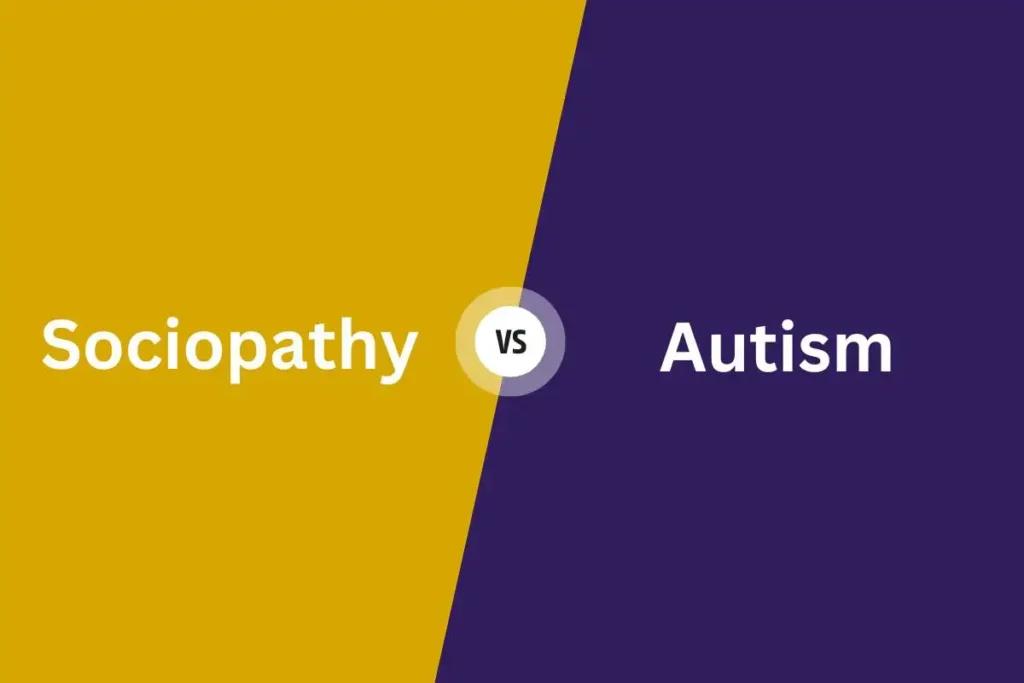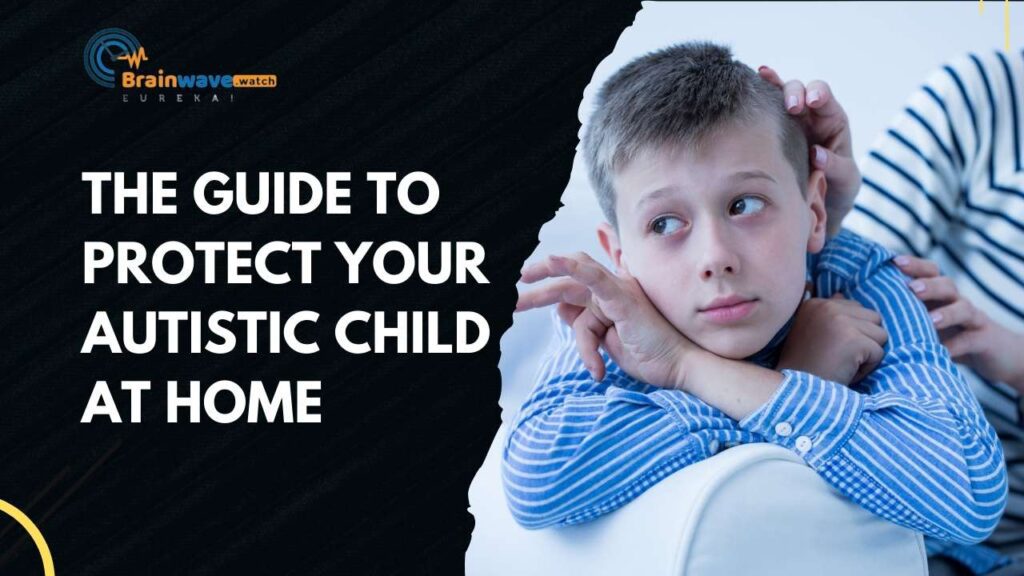Sociopathy and autism are distinct conditions with different characteristics and causes. Sociopathy, also known as Antisocial Personality Disorder, involves a pattern of disregard for others’ rights and feelings, manipulation, and often a lack of empathy. Autism, on the other hand, is a neurodevelopmental disorder characterized by challenges in social interaction, communication difficulties, and repetitive behaviors.
Sociopathy and autism are two distinct conditions that are often misunderstood and confused with one another. While both conditions may share some similarities, they are fundamentally different.
Sociopathy, also known as antisocial personality disorder (ASPD), is a personality disorder characterized by a lack of empathy, manipulative behavior, and a disregard for the rights of others. Individuals with sociopathy may engage in criminal activity and lack remorse for their actions. Sociopathy can arise from a combination of biological and environmental influences. Biological factors such as genetics and brain structure, as well as environmental factors such as childhood abuse and neglect, can contribute to the development of sociopathy.
Autism, on the other hand, is a neurodevelopmental disorder that affects social interaction, communication skills, and behavior. Individuals with autism may have difficulty understanding social cues and nonverbal communication, struggle with changes in routine, and have limited interests. They may also experience sensory sensitivities and have difficulty with verbal and nonverbal communication.
One key difference between sociopathy and autism is how individuals with each condition experience and express emotions. Individuals with sociopathy often lack empathy and disregard the feelings and rights of others. In contrast, individuals with autism may struggle with understanding and expressing their own emotions, as well as understanding the emotions of others.
Another difference between sociopathy and autism is how individuals with each condition interact with others. Individuals with sociopathy may be manipulative and use others for their gain, while individuals with autism may struggle with social interaction and have difficulty forming relationships.
Diagnostic Criteria
Sociopathy Diagnose: To diagnose sociopathy, mental health professionals use the criteria outlined in the Diagnostic and Statistical Manual of Mental Disorders (DSM-5). According to the DSM-5, individuals with sociopathy exhibit a pervasive disregard for the rights of others, as well as a lack of empathy and remorse. They may also engage in impulsive and irresponsible behavior, and have a history of violating social norms and laws.
To meet the diagnostic criteria for sociopathy, an individual must exhibit at least three of the following traits or behaviors:
- Repeatedly violating the rights of others, as evidenced by engaging in criminal behavior, lying, or manipulating others for personal gain
- Disregarding the safety of oneself or others
- Failing to conform to social norms or laws
- Exhibiting a lack of remorse for hurting others or engaging in harmful behavior
- Demonstrating a pattern of impulsivity, irresponsibility, or risk-taking behavior
- Exhibiting a lack of empathy or concern for the feelings and well-being of others
Autism Diagnosis: Diagnosing autism involves assessing an individual’s social communication skills, as well as their behavior and interests. According to the DSM-5, individuals with autism spectrum disorder (ASD) exhibit persistent challenges in social interaction, communication, and restrictive or repetitive behaviors.
To meet the diagnostic criteria for ASD, an individual must exhibit:
- Persistent deficits in social communication and social interaction across multiple contexts
- Restricted, repetitive patterns of behavior, interests, or activities
- Symptoms that are present in early childhood, even if they are not recognized until later in life
- Symptoms that significantly impair the individual’s functioning in social, academic, or occupational settings
To receive an ASD diagnosis, an individual must exhibit symptoms from both categories. Additionally, the severity of these symptoms can vary widely, from mild to severe.
Behavioral Characteristics
Sociopathic Behaviors
Individuals with sociopathy often exhibit manipulative, impulsive, and aggressive behaviors. They may engage in criminal activities, lie frequently, and be unable to form meaningful relationships. Sociopaths may also lack empathy and disregard the feelings and rights of others. They often exploit others for their gain and may act impulsively without considering the consequences of their actions.
Autistic Behaviors
Individuals with autism, on the other hand, typically exhibit difficulty with social communication and interaction. They may struggle to understand nonverbal cues, have difficulty making eye contact, and may engage in repetitive behaviors. Autistic individuals may also have difficulty with changes in routine and may struggle with sensory processing. They may have difficulty understanding the emotions of others and expressing their own emotions appropriately.
It is important to note that while sociopathy and autism share some behavioral characteristics, they are distinct conditions with unique characteristics. It is crucial to seek professional help to obtain an accurate diagnosis and develop an appropriate treatment plan.
| Aspect | Sociopathy | Autism |
|---|---|---|
| Social Behavior | Manipulative, deceitful, shallow affect | Difficulty with social cues, empathy |
| Emotional | Lack of remorse, guilt | Difficulty expressing and understanding emotions |
| Communication | Fluent in speech, charming | May have speech delays or challenges |
| Relationships | Superficial, exploitative | Difficulty forming and maintaining relationships |
| Sensory Issues | Less likely | Common, hypersensitivity to stimuli |
| Interests | May focus on power, control | Specific interests, repetitive behaviors |
| Cognitive | Generally normal cognitive abilities | Varies widely, from impaired to exceptional |
| Empathy | Lack of empathy | Difficulty understanding others’ emotions |
| Behavioral Traits | Impulsive, irresponsible | Rigid adherence to routines, repetitive behaviors |
Social Perception and Interaction
Individuals with sociopathy and autism have different ways of perceiving and interacting with the world around them. While sociopaths may manipulate and deceive others, individuals with autism may struggle to understand social cues and express themselves effectively.
Empathy in Sociopathy
Sociopaths typically have a lack of empathy, which can make it difficult for them to comprehend or relate to the emotions and experiences of others. They may seem unconcerned with the consequences of their actions and may engage in behavior that is harmful to others without feeling remorse.
Sociopaths may be charming and charismatic, but they often use these traits to manipulate others for their gain. They may be skilled at reading people and using this knowledge to their advantage.
Empathy in Autism
Individuals with autism may struggle with understanding and expressing empathy, but this does not mean that they lack the capacity for empathy altogether. Individuals with autism may have difficulty understanding social cues and may struggle to express themselves effectively, which can make it challenging for them to connect with others.
However, this does not mean that individuals with autism are incapable of feeling empathy. Many individuals with autism are highly sensitive to the emotions of others and may feel overwhelmed by the intensity of their own emotions.
Support and Management
Managing Sociopathy
Management of sociopathy is usually done through psychotherapy or talk therapy, which can provide opportunities to implement strategies to work on anger management or possible addictions. Medication usually includes an antidepressant and a mood stabilizer. It is important to note that there is no cure for sociopathy, but treatment can help manage the symptoms.
In addition, individuals with sociopathy may benefit from joining support groups or seeking help from mental health professionals. It is important to have a strong support system in place to help manage the condition.
Support for Autism
For individuals with autism, early intervention is key to improving outcomes. Treatment often involves a combination of therapies, including behavioral therapy, speech therapy, and occupational therapy. These therapies can help improve communication skills, social skills, and behavior.
In addition, individuals with autism may benefit from support groups and community resources. These resources can provide a safe and supportive environment for individuals with autism and their families. It is important to have a strong support system in place to help manage the condition.
It is also important to note that there is no cure for autism, but with the right support and management, individuals with autism can lead fulfilling and productive lives.







